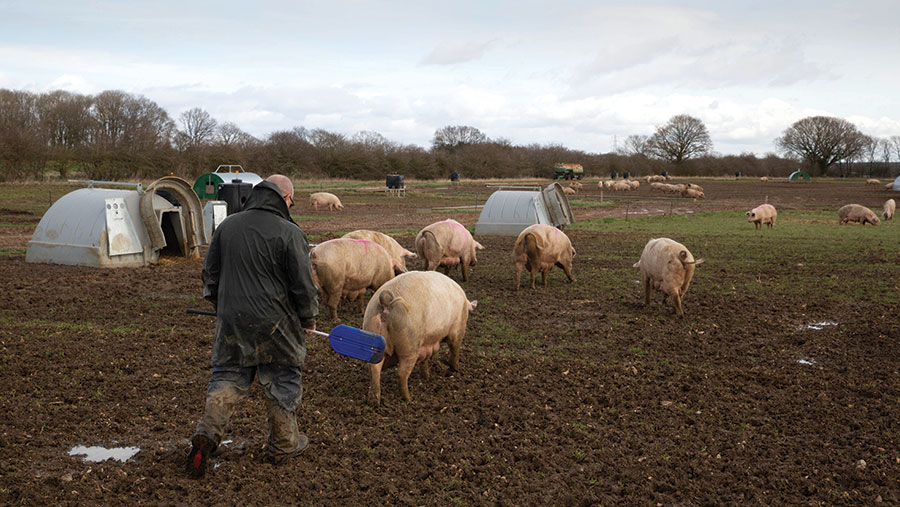Coronavirus: Who is eligible for self-employed support?
 © Tim Scrivener
© Tim Scrivener New entrants and company directors may struggle to receive financial support from the government’s new scheme for the self-employed.
Chancellor Rishi Sunak announced on Thursday (26 March) that self-employed workers and freelancers would receive payments during the coronavirus outbreak.
This will amount to a taxable grant of up to 80% of monthly profit, capped at £2,500, available by early June.
See also: Coronavirus: Advice for managing and keeping staff safe
The Self-Employment Income Support Scheme (SEISS) was designed to bring self-employed workers on a par with employees furloughed under the Job Retention Scheme.
To be eligible, the worker’s trading profits must be less than £50,000, with the majority of their income coming from self-employment, and they must already be in self-employment with a tax return for 2019.
HMRC will approach people who are eligible based on data they already hold to invite them to apply online.
Workers will then receive a lump sum payment of three months of backdated support directly from HMRC.
However, these rules have proven difficult for a huge number of self-employed people, meaning many will receive no government support from this scheme.
Martyn Dobinson, partner at accountant Saffery Champness, answers some of the most common queries.
Partnerships
In the case of a trading partnership, as the partners are considered independently for income tax purposes, they will each be assessed individually for this purpose on their respective shares of the partnership profits in the relevant periods.
For example, in a two-partner partnership with average profits of £90,000 – if each partner takes a 50% share and therefore has average profits of £45,000, I’d expect both partners to be eligible, assuming the other conditions are met.
Similarly, where an individual has more than one trade, I’d expect all profits from their separate trades to be amalgamated before comparison to the limits under the scheme.
Running own company
This support scheme only applies to the self-employed, which would include sole traders and partners in a partnership.
Those who are directors or employees of their own limited companies, which is not uncommon in farming businesses, cannot benefit from the SEISS but may be able to benefit from the Coronavirus Job Retention Scheme (see ‘Alternative support’).
New entrant
To be eligible for the SEISS, an individual must have submitted an income tax self-assessment return for 2018/19, but only needs to have actually traded in the 2019/20 tax year.
They must be trading when they apply, or would have been trading had it not been for Covid-19, and they must intend to continue trading in 2020/21.
If an individual doesn’t have the full three year trading history for the trading profit averaging, then the averaging will be done considering only those years in which the individual did trade, so long as the other conditions are met.
Making a loss
If a business has recently started trading and does not have a profitable history, there will be no grant paid by the government.
Alternative support
If ineligible for SEISS, workers may be able to claim government support through the Job Retention Scheme.
HM Treasury said owner-directors could apply to furlough 80% of the PAYE element of their income for salaried staff and continue to perform their statutory obligations as company directors — so long as that was all they were doing.
The business may also qualify for the Coronavirus Business Interruption Loan Scheme. There are qualification criteria and financing of up to £5m for periods up to six years can be sought.
The government will provide lenders with a guarantee of 80% on each loan and will also cover the first year’s interest payments and arrangement fees.
Meanwhile, income tax payments due by the end of July 2020 have been automatically deferred to 31 January 2021.
Any VAT payments due between 20 March and 30 June have been automatically deferred to the end of the 2020/21 tax year – VAT returns should be filed as normal.
Where a business is struggling to meet its tax commitments, time to pay arrangements can be agreed with HMRC for all taxes.
In addition, self-employed workers can apply for Universal Credit or Employment and Support Allowance.
Agri-tourism enterprises
Catherine Vickery, associate director for accountant Old Mill, warns the SEISS may leave farmers who have a seasonal agri-tourism enterprise at a slight disadvantage.
The figure that self-employed workers can claim is averaged out over 12 months, even if that income is typically generated over a much shorter period.
“If most of their income only appears in the summer months they will have lost a whole year’s income,” said Ms Vickery.
“But they will only get [three or perhaps six months] pro-rata worth of relief from the government. I can see that being a major concern for businesses.”
